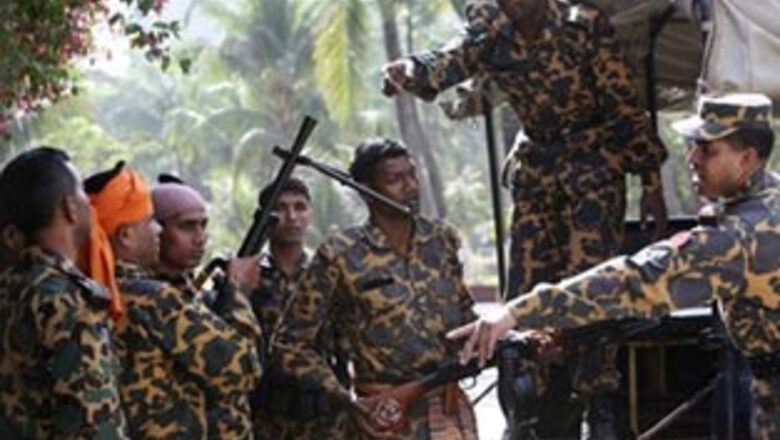
views
New Delhi: The mutineers of Bangladesh Rifles (BDR) surrendered their arms on Thursday afternoon after Prime Minister Sheikh Hasina urged them to go back to barracks, ending a 33-hour battle.
The BDR troopers agreed to release all hostages held inside the Bangladesh Rifles headquarters in Dhaka.
Bangaldesh government and the rebels reached an agreement after the country's Home Minister Shahara Khatun went inside the headquarters, unarmed, for the second time in 24 hours, to negotiate a full surrender without the army stepping in.
After that the rebels surrendered their arms, hoisted white flags, allowed police vehicles to enter and the armed police to take charge of the armoury.
At the same time, several army officers along with their family members, who were kept hostage, were released in phases.
Earlier in the day Hasina, in a televised address to the nation, had given stern warning to the rebels.
"Kindly surrender you arms and move back to your barracks or I will be bound to take strict action in the national interest," Hasina had warned.
Hasina was forced to step in after the situation seemed to get out of control across the country as more and more dead bodies kept coming out of the BDR compound.
There were reports of the mutiny spreading from Rajshahi, Dinajpur, Feni and Naogaon to near the Indian border at Chittagong, Khulna, Satkhira, Jaipurhat, Thakurgaon and Bandarban,
A total of 77 people including 67 top army officers and BDR soldiers have been killed in the bloody mutiny.
The final death toll is expected to be much higher and nearly 1,000 rebels have fled in civilian clothes, taking advantage of the confusion. However, many were arrested by Thursday evening,
But the political solution to a security crisis is something Bangladesh, prone to army coups, has hardly seen before.
Bangladesh's newly elected democratic government had managed to keep the army at bay
The army had earlier, provoked by the killing of their senior officers, rolled out tanks on the streets of Dhaka to flush out the rebels.
In New Delhi, Indian intelligence officials told CNN-IBN that it was hard to believe that grievances over salaries could result in such violence.
They point fingers at the hardline Jamaat-e-Islami and an advisor to former prime minister Khaleda Zia for orchestrating much of the drama.












Comments
0 comment